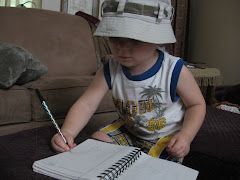Wong, Janet.
(1999). Behind the wheel: Poems about
driving. New York , NY
What teenager hasn’t waited expectantly for that day when
they hop behind the wheel of a car and get their drivers license? The thrill of finally being able to go
wherever you want, whenever you want (theoretically, of course!) is such an
appealing thought. So the title of Janet
Wong’s volume of poems is the perfect eye-catcher for the teen reader.
Once inside the slim volume, readers will discover poems centered around all kinds of aspects of cars and driving; however, the intriguing part is that these driving poems are actually metaphors for life.
Generally, most poems have appeal. In fact, I read the first one and instantly
hopped onto my computer to send it to a friend who has been helping me through
a rough time. I’m not the type to ask
for help much – I’m tough, stoic; I can handle this. I have to remind myself that it’s okay to not
be okay all the time, and even more importantly, it’s okay to let others
know.
Ask a Friend
You don’t always need
to go it alone.
Ask a friend
to give you a ride,
to help you out,
to get you home.
When you’ve found some better times,
you won’t forget, you’ll pay him back.
Let your friends be good to you.
Go along for the ride,
face in the wind.
I then shared this poem with my high schoolers before asking
them to write an essay that was a district-required timed writing. I get to choose the topic of the essay, so I
read this poem and asked them to write about a time they needed help and either
asked for it or didn’t, including how it turned out and if they would make the
same choices if they could do it again.
The poem made a great jumping-off place, a way to focus thoughts and enter
into the prompt.
I found most of the poems to be entertaining as well as
thought-provoking. My favorite was
probably the title poem.
Behind the Wheel
Forget kindergarten,
sharing.
Everything you need to know
you learn right here
behind the wheel.
Watch out for the other guy.
Keep your eye on your rear.
Thank the old lady who lets you in.
Don’t steal someone else’s spot.
When you rush to park and end up hopeless, crooked –
just start over.
An interesting way to introduce this volume of poetry to
students is to read Robert Fulghum’s list of things he learned in Kindergarten,
which is referenced in Wong’s first three lines - share everything, play fair,
don’t hit people – there are 16 of them.
Then read the poem and ask students what else they can learn from
driving.
The poems are free-verse and are consistently short and easy
to understand. The only poem I did not
personally like was the poem “OK” – a didactic, obligatory nod to avoiding
drinking and driving. (Wong even uses
“preachy” in the first line – “You hate to hear this preachy stuff again and
again.”) That particular poem didn’t
seem to have the impact it needed for such a serious subject. Otherwise, the poems are an appropriate mix
of topics within the concept of driving, and the emotions they evoke cover a
wide range - funny and serious, family and friends, happy and frustrated. Sensory imagery will engage the minds of the
teen readers and the layout is appealing because most poems are short enough to
fit on one page, and if two pages are needed, then the poem is placed on facing
pages so one never has to turn a page to finish a poem.
Our school library has a copy of Behind the Wheel, and it is a volume I’ll be using again and again
with my classes. However, it is also a
great little book for individual reading that many teens will find interesting
and fun.



No comments:
Post a Comment